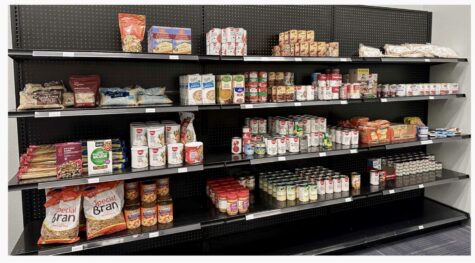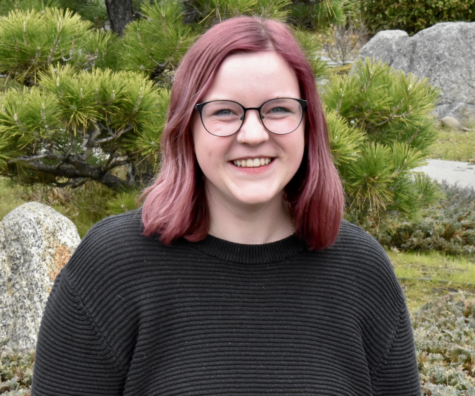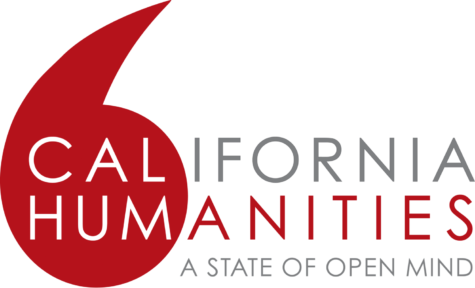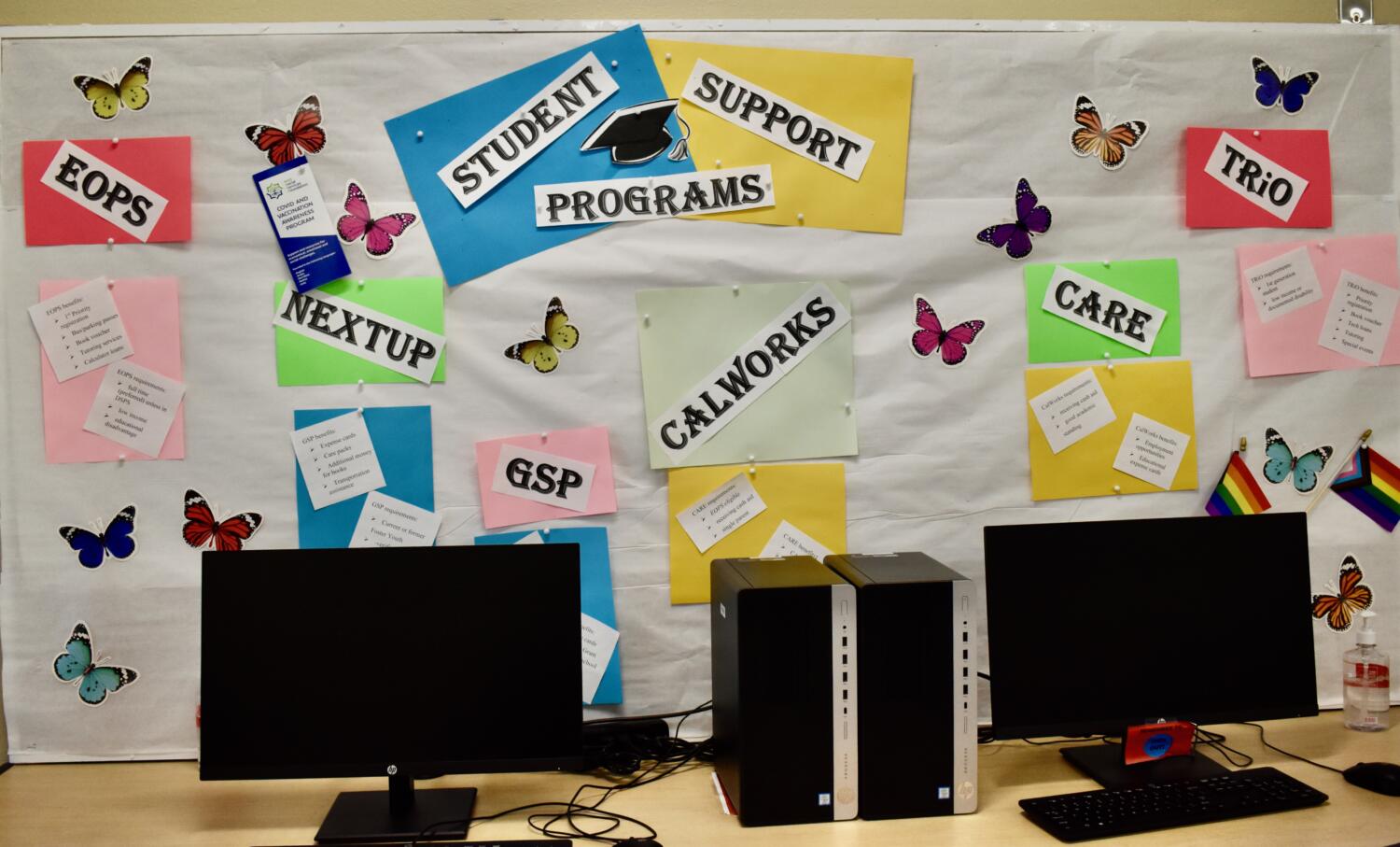It’s a quiet afternoon on March 16, 2023 and I am sitting on a large, grey couch in the middle of the Basic Needs Center on the Sierra College, Rocklin campus. Chatter comes from behind the front desks that face windows looking out into a small courtyard. Claire Masztakowski, a student employee, turns away from her conversation to face two young students walking through the door. She types their ID numbers into the computer, and the students go peruse the Food Pantry. This is one of many spaces around campus with resources that support students to further equity.
Support though the Basic Needs Center
The Basic Needs Center is one of many facilities on campus that provides students with resources they may need to have a more equitable experience while attending the college. By providing students access to non-perishable groceries and hygiene products, it can lower their weekly costs. This can lift some of the stress of budgeting for groceries that impacts low-income students .
Masztakowski has been a student employee at the Basic Needs Center for two semesters. She said, “The food pantry is a service for all students regardless of your income or otherwise.” She explained how students access it:
“All you need is a student ID number, we enter you into the system, make sure you’re registered, and then you can go into our pantry and shop around for 20 points worth of items. The point system goes from one to three and in there you’ll find stuffing mix, which would be three, bagged rice would be three, snacks would be one and the canned goods would be two.”

Additionally, an “Essentials Pantry” on the opposite side of the space is filled with things like toilet paper, deodorant, and menstrual products that students also have access to.
The Basic Needs Center accepts donations of unexpired, non-perishable goods from current and past students, community members, Raley’s grocery story and the Placer County Food Bank.
The Center was relocated in December 2022 to be more central and provide more space for goods. Since this, Program Manager, Brit Bray, said she has “…seen an increase in the number of students utilizing the food pantry.” She added:
“I think taking it out of a space that is intended for other programming and putting it into a dedicated Center helps reduce some of that stigma. You know what you are getting into when you come here. When you see other people in this space, they’re folks who might be in the same position that you are in.”
The most recent changes to the Basic Needs Center, including the bigger space, were initiated after Bill AB-132 passed in 2021. This Bill outlined specific requirements for Basic Needs Centers on all California Community Colleges. In closing, Bray said:
“Basic needs support is human rights.”
Support through the Student Services Center
In the Winstead building at the center of campus sits another major hub for student resources, the Student Services Center. In this Center, there are the offices for the CalWorks, Cooperative Agencies Resources for Education (CARE), Extended Opportunities Programs and Services (EOPS), Guardian Scholars, NextUp, TRIO and the Student Accessibility Services (SAS) programs. Each of the programs provide different assistance to qualifying students and can help ease struggles that may arise during students’ college education at Sierra.
CalWorks is a program through the state of California that provides resources to eligible families, and some of those resources extend to community college. Eligibility requirements for college students include being a recipient of CalWorks or a former recipient of CalWorks (within two years), being currently enrolled in at least one class through Sierra College and maintaining at least a 2.0 GPA. Students who qualify for the program have access to counseling, employment opportunities, financial grants, priority registration and loaner laptops and calculators.
The Extended Opportunities Programs and Services (EOPS) program can provide resources to students such as funding for textbooks, class resources, transportation, graduation and transfer costs; counseling and priority registration. Eligibility for the program requires the student to be full-time at Sierra College, approved for the California College Promise Grant, be a California resident and be “educationally underserved” as clarified on the website.
An EOPS Student-Employee View
Seven Lewis is a student employee and a part of the EOPS program at Sierra. I asked her how she saw equity playing out through these resources. She said:
“For me, being the first person in my family to go to college and somebody who didn’t really have a good leg to stand on financially, especially at the beginning of my adult life, an equitable college experience is having that additional financial support and having a counselor I can go to that can help encourage me and find resources and support me to make the best financial decisions I can while I’m in college, and set myself up for success later.”
The Cooperative Agencies Resources for Education (CARE) program is an extension of EOPS that provides additional resources to single parents who are eligible for and receiving help from the CalWorks program.
The Guardian Scholars and NextUp programs offer services for current and former foster youth. According to a NextUp Legislative Report, foster youth are amongst the most vulnerable student populations at community college because of the financial and housing instability that many of them face. Among the services provided are counseling; priority financial aid processing; funds for meals, transportation, and textbooks; on campus housing and housing essentials for those in dorms; “care-packs” with school supplies and hygiene products; transfer assistance and more.
While the services vary slightly between the two programs, both offer a wide variety of resources to eligible students. To be eligible for the Guardian scholars, a student must be a current or former foster youth enrolled at Sierra College.
For NextUp, a student must be enrolled in EOPS, be taking at least nine units, have had a court dependency status that was established on or after their 13th birthday and be no older than 25 when the academic year begins.
TRiO is a counseling program specifically designed for first-generation and low-income students. First-generation is a designation that means neither parent graduated with a 4-year degree. TRIO participants have a goal of getting their Associates degree and then transferring to a four year university. To be eligible for TRiO, in addition to being first-generation, you must be low income, or have a documented disability. TRiO, like the aforementioned programs, provides resources like priority registration, academic and transfer counseling, tutoring, assistance with financial literacy, workshops, mentorship programs, book vouchers and technology checkouts.
Finally, the Student Accessibility Services provides service to a variety of eligible students, which include priority registration, academic accommodations, captioning and interpreter services, and counseling. Eligibility for this program requires scheduling an SAS counseling appointment and bringing disability documents, such as a physician’s verification, a 504 or Individualized Education Plan from high school, to the appointment to get verified.
Intersectionality through the Student Engagement Centers
Located on the fourth floor of the library building on the Rocklin Campus is the temporary location for the Pride Center as well as the Women and Gender Resource Center.
Stefaney de Genova is the Student Engagement Specialist, serving the Pride Center, Women and Gender Resource Center and the Cross-Cultural center. This triad make up the Student Engagement Centers, led by Program Manager, Marwa Harps. The Cross-Cultural Center is already in its new location by the Cafeteria, the others are soon to relocate. In terms of their purpose, de Genova said:
“Our biggest framework for how we view equity and bridging gaps is through an intersectional lens.”
According to the Center for Intersectional Justice, “Intersectionality is the concept of recognizing that people have multiple identities and they aren’t just one singular identity. When you have multiple points of oppression, you tend to face the most severe of discrimination bias.”
All three of these Centers are connected around campus and have the same staff working in each of them in order to support students in the best way possible. By recognizing that people can fall into more than one “category,” Genova, and others working at these Centers are able to meet their individual needs.
Genova said:
“We want to make sure that students visually see that this is a space for them, because it’s also a part of the process of really breaking down and dismantling the imposter syndrome that so many folks experience in higher ed.”
She continued, “Then, ideally, the end goal is justice. It’s not just about providing the resources, it would be fixing the institution itself and fixing the embedded biases that exist within our curriculum and exist within our processes and procedures.”
These Centers help to counter the imposter syndrome mentioned by Genova by reminding students that they belong. Ultimately, they provide a space for those on campus who most often face hardship to seek out the resources that they need and hence create more equity in an increasingly diverse environment.
Where Do We Go From Here?
The Basic Needs Center, Student Services Center and the Student Engagement Centers are some examples of the many spaces and services that Sierra College offers to students to make it a more equitable place.
Although there are many resources available to students, there is still room for growth and change in regards to the way student equity is addressed. Dr. Syms, Sierra College’s Dean of Equity said, “I think there are opportunities to continue to evolve. I think we have the opportunity to constantly be responsive and where we are growing the most and where we have that greatest opportunity is about dexterity and flexibility.”
One of the biggest problems surrounding equity at Sierra College seems to be that students don’t always know about the programs available to them. While students do receive emails about programs, they are often flushed with information sent to everyone as opposed to just the students who need it.
Additionally, students receive emails every day, and so those that do not seem like they are of “immediate importance” often go unread. While there is outreach during specific events, particularly from the Student Engagement Center, the Basic Needs Center and the Student Services Center seem to rely mostly on word of mouth to disseminate information about resources they provide to students.
Regarding the Student Services Center, Lewis said:
“I wish they knew more about us. We just had an event and a bunch of people came up and were like, ‘oh what are special programs?’ I wish that more students knew about it and I wish that they knew about it before the semester started.”
Similarly, Bray said, “I wish students knew more about the resources that we have available to support them. I think getting the word out about the Basic Needs Center is going to be important too.” She added:
“We’ve had the Food Pantry for years but having a dedicated Center for it allows for us to be able to provide more comprehensive support. Letting folks know that we’re not just a food pantry and that we can help with other support services as well, and just to know that we’re here for students.”
As Sierra College works to increase equity on campus, it should also work on its student outreach, connecting students to the resources already available to them. Whether that be including these resources in the registration process, or discussing them when representatives go out to high schools and events, there are a number of ways that Sierra College can take active steps to get more students into the programs that will help them succeed.
As a whole, these services help to create space for students where there wasn’t space before, and make an education more attainable at a community college level. Each new program that is introduced paves the way for greater equity.
Reported and Written by Sierra Mickelson

Editor’s Note
This article is one in a set of stories called, “Everybody is Entitled to Equity,” that were supported through the California Humanities “Emerging Journalist Fellowship.” The Fellowship awards up to four student-fellows in Journalism programs at California Community Colleges funding to do community-based journalism. This is the second year that the Sierra College Journalism program has received this significant statewide award. In 2023 at Sierra College, additional support for a fifth fellow was awarded through the Sierra College Foundation.
Any views or findings expressed in the five stories that make up, Everybody is Entitled to Equity, published here on Roundhouse News & Review, do not necessarily represent those of California Humanities or the National Endowment for the Humanities, or the Sierra College Foundation.

